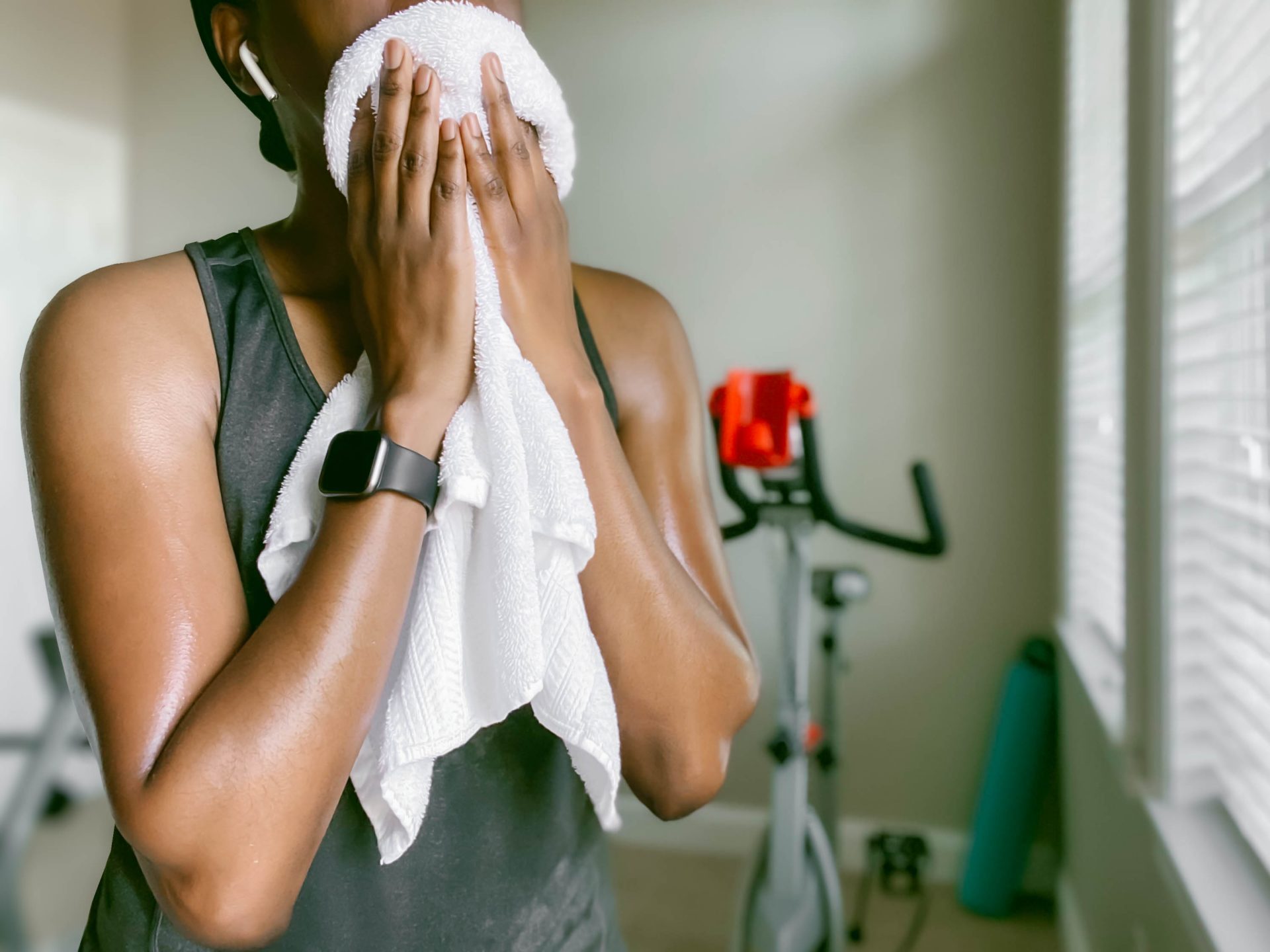Think that a glass of water is all you need after a sweaty session? Think again. Writer Jessica Harris explains why it could be time to up your post-workout recovery with a home-made electrolyte drink.
When you think of electrolytes, what springs to mind? More often than not, it will be an alarmingly coloured sports drink that promises to fuel your workouts while boasting a hue similar to that of toxic waste. Under all the jargon and hyperbole, these drinks do serve a purpose: they contain the same little electrical conductors that reside within our body and which are called upon for the majority of our organ functions.
You don’t have to be Nicola Adams to benefit from drinking electrolytes, either; experts believe that keeping electrolyte levels balanced is key for everyday energy levels and our overall wellbeing.
You may also like
Banana oat pancake recipe for a high-protein post-workout refuel
In general, we consume a sufficient number of electrolytes by eating a healthy, balanced diet full of foods such as bananas, celery, tomatoes, milk, yoghurt and oranges. But throw a sweaty weights session into the mix and you may need to pay closer attention to your levels. “We lose electrolytes in our sweat (hence why it’s salty) so it’s important to replenish them after any activity that causes us to sweat,” says Dr Frederica Amati, chief nutrition scientist for Indi Supplements.
“When we are lacking electrolytes, we are more likely to suffer from muscle cramps, fatigue, nausea, muscular weakness and headaches caused by dehydration. On the flip side, too many electrolytes – consuming too much salt in our diets – can cause high blood pressure and heart problems.”
What are electrolytes?
“Electrolytes are minerals that carry an electrical charge in our body, like sodium, potassium, calcium, bicarbonate, magnesium, chloride, and phosphate,” explains nutrition scientist Ella Rauen-Prestes.
“Vital for health and survival, they spark cell function throughout the body. Electrolytes also support hydration, helping the body to produce energy. They’re also responsible for brain function and stimulating muscle contractions – including those that keep your heart beating.”
Alex Ruani, UCL doctoral researcher and chief science educator at The Health Sciences Academy goes as far as saying that without balanced electrolytes, our organs and muscles could become so weak that they fail. “The contraction of your muscles, whether it’s your heart or your biceps, depends on the electrical charges of potassium, sodium, and calcium. But if muscle cells and their surrounding areas have low levels of these important electrolytes, your muscles won’t be responding as you’d like them to, and your heart muscle could even get weaker.
“Certain hormones – with the help of our kidneys – help to maintain electrolyte balance in the body. Dehydration or over-hydration, on the other hand, will disturb this electrolyte balance, which can lead to cardiac arrest and brain damage if unresolved.”

Electrolytes and exercise
It makes sense that we would lose electrolytes through sweat but studies have revealed that rehydration after exercise can be achieved only if water and electrolyte losses are replaced. “Replenishing your water and electrolytes losses after training is important for recovery, particularly when you engage in exercise lasting longer than two hours, or in vigorous exercise for an hour or longer,” Ruani explains.
We lose as much as 2 litres of water and electrolytes in just one hour of strenuous exercise, Ruani says, particularly in warm conditions. When that happens, our blood volume goes down and the heart has to work harder to pump blood – making movement harder too. “Your maximal aerobic capacity could fall by over 30% at this point and your breathing would become more laboured, potentially followed by some dizziness, weakness, or confusion,” he continues. “This is when it’s important to replenish fluid and electrolyte losses to quickly rehydrate and re-establish electrolyte balance in muscles and nerves to mitigate adverse health consequences.”
On the other end of the spectrum, Ruani warns that drinking too much water can cause electrolytes to be too diluted. “ Over-hydrating drastically and all at once can dilute the blood while also causing levels of sodium, potassium, and other electrolytes to fall and a flood of water into brain cells.”
DIY sports drink recipe
While vibrant sports drinks promise to replace lost electrolytes, Dr Amati believes that finding more natural alternatives will double the health benefits. “It’s important to choose natural sources such as coconut water and avoid sports drinks that have added artificial sweeteners, colouring and flavouring,” she says.
As a Brazillian, Rauen-Prestes wholeheartedly agrees that coconut water is a great natural alternative. “We’re obsessed with it. We make ice out of coconut water to put into everything, which is a great trick,” she says. “In terms of food, a healthy balanced diet can help with electrolytes. (Plump for foods) like spinach, kale, broccoli, beans, potatoes, nuts, berries, tomatoes, milk, olives, chicken, fish, avocados, bananas (this one is the electrolyte superstar), and lots of water.”
Alex Ruani’s easy DIY sports drink recipe
It couldn’t be cheaper or easier to make your own electrolyte-rich drink. We can’t guarantee that it’ll be as fizzy as a Lucozade but at least it’ll be a more normal colour…
INGREDIENTS
- 250ml of fruit juice
- 750ml water
- 1g table salt (optional)
METHOD
- Mix 250ml the juice with the water.
- Berry, orange, apple or pineapple juice are all naturally high in potassium and sodium so can be the best choice for re-fuelling.
- Add the table salt (if using one of the juices listed, this is optional) and shake well.
- Chill for at least an hour.
Make this drink before starting one of the SWTC workout videos.
Source: Read Full Article
